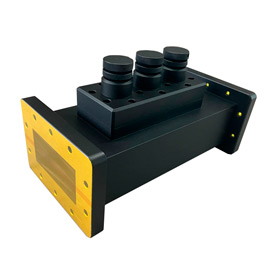INDUSTRIAL MICROWAVE COMPONENTS

Apraksts
Dolph Microwave offers a full line of industrial microwave products. Specializing in waveguide components, including launchers, isolators, directional couplers, tuners and loads. Operating frequency covers 915 MHz and 2450MHz, power up to 20kW CW, with our manufacturing and engineering capabilities we can also offer custom designed products. Any requirement related to this field, please contact.
Types of Industrial Microwave Components
Industrial Microwave Component, namely Microwave energy, is electromagnetic waves (of which radio, visible light, infrared and ultraviolet are all types of differing frequency and wavelength) are made up of alternating electric and magnetic fields. The alternating electric fields in microwaves are the parts that agitate the water molecules which is used to heating and diamond making.
Working Principle of Industrial Microwave
Many materials are processed by means of microwave heating, and not just for the next meal, although microwave energy is the main component of thermal processing used to eliminate bacteria in commercial food products.
In agriculture, microwave energy is exploited for drying of grain and removal of moisture from wood for use as lumber.
In the pharmaceutical industry, microwave energy removes the moisture from various powdered substances.
In the materials supply industry, microwave energy enables the addition of different types of coatings to rubber and plastic materials.
Application of Microwave Energy
The application of microwave energy is mainly microwave heating, and its mechanism is based on the thermal effect generated by the interaction and absorption of microwaves with substance molecules. Compared with infrared heating, high-frequency heating and other heating methods, it has different characteristics. Microwaves can penetrate deep into the interior of an object, and heat is generated from the material itself during heating, without relying on heat conduction, heating inside and outside at the same time. Microwaves have a short wavelength and are easy to concentrate and protect. The advantages of microwave heating are: high thermal efficiency, energy saving, and fast heating speed.

